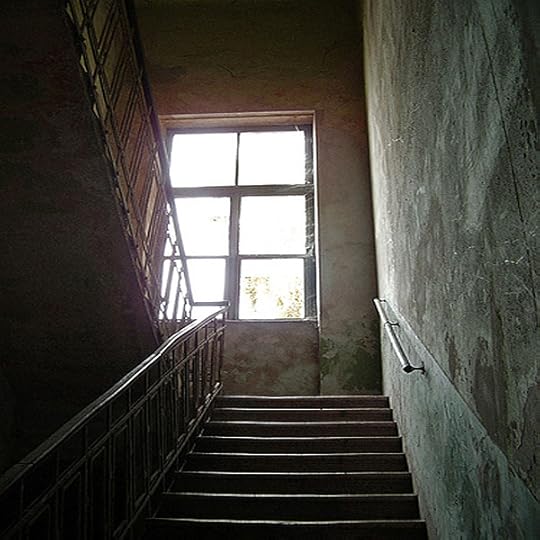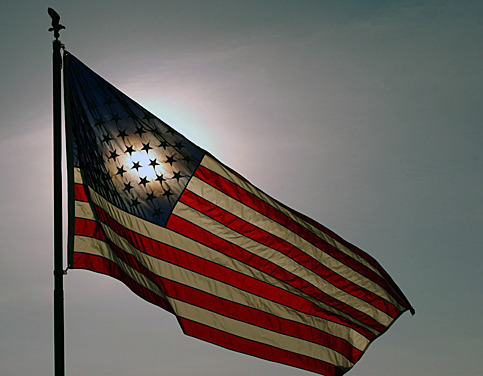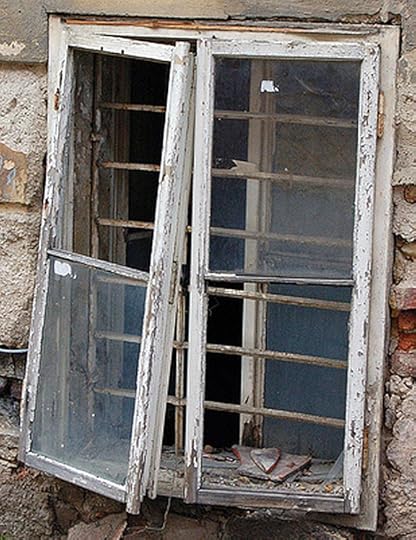The American Problem
I used to think isolation and ignorance were my own unique problems.
Growing up in Chicago without faith and without a foundation in reading, it didn’t occur to me that other people might have the same problems with identity and destiny.
Living in London at 19, I heard it said a lot that isolation and ignorance were American problems. That opened my eyes a little, but I never connected that to my own alcoholism or to my own nihilism.
So the other day I was wondering how best to explain the dynamic relationship between serious literature and meaning that has been such a gift to me in my second chance at life. I came across a newspaper article from 2009 that I had clipped about the chairman of the Nobel Prize award jury in Stockholm, who called American literature too isolated and too ignorant to be taken seriously.
Specifically, he said American literature was too wrapped up in popular culture to be useful to the rest of the world. You can imagine the outrage that comment provoked from the American publishing establishment. It doesn’t outrage me. But that is not the point.
The point is that suddenly everything that I want to say in this space has fallen into place.
And what I want to say is that isolation and ignorance are art’s problem.

It is art’s job to take on the biggest questions of existence, so that we feel more solidarity with humanity, and so that we feel more enlightened about eternity.
It is art’s job to deepen what we know about ourselves and to expand what we know about our world.
It is art’s job to do for us what we cannot do for ourselves – otherwise why bother with novels or museums or symphonies at all?
Having said that, there are two huge problems for us.
FIRST, it is bad enough when a non-reader like me refuses to go to art for answers – either because I don’t know that art has answers, or more likely because I am too lazy or too proud. Either way I suffer and die in the shadow of the solution.
SECOND, it is much worse if I go to art and find that the meaning isn’t there because artists aren’t doing good art. If the art written by Americans is not solving the big problems of life by awakening readers, then the art written by Americans is solving lesser problems of boredom or paying the rent. And our culture suffers and dies in the darkness.
My experience is that isolation and ignorance are my own problems as long as I never read. But isolation and ignorance are America’s problem as long as American artists write for money instead of meaning.
 If American art does its job and takes on the problem of meaning in this broken world full of souls who know death is coming, then the burden of existence is lightened, and people can love in the midst of suffering.
If American art does its job and takes on the problem of meaning in this broken world full of souls who know death is coming, then the burden of existence is lightened, and people can love in the midst of suffering.But if art cannot bring us into communion with each other, so that we discover our uniqueness in unity, if art cannot inform our conscience with the wisdom to put others first, to love justice and walk humbly, then what we are left with is entertainment.
God knows entertainment is a good thing. God knows that entertainment is one thing we don’t have a shortage of in America. But there are great experiences in fine art that more exhilarating and more enchanting than entertainment.
Reading great novels has made me the radical I have always wanted to be. Great novels have given me that buzzed rush of invincibility I used to get only during the first few years of drinking, with the difference that the literary highs linger longer in my interior and create this energetic appetite to do something.
Great novels make me shake my head in awe. They make me write things down that I want to pass down to my grand kids. They make me feel as proud and as privileged to read them as a VIP. But they are so much more important than that, because they are much more intimate than that.
The Manhattan writer John Herman who was my editor while I was writing “Great Desires for Absent Things” has compared reading the classics as second only to the pleasures of the body when it is young, except less fleeting.

The comparison never occurred to me quite like that, but I have to admit it’s true. There truly is something sensationally personal and uniquely fulfilling about connecting with great literature.
Reading a classic really is an up close relationship across time and space, and the question becomes what kind of a relationship do you have with what you read? Is it worthy of you?
I am not here to tell you that I discovered meaning in life only because I picked up Augustine or Dante or Dostoevsky. There is more to my story than the fact that I went from an ether major and a nothing-artist who never read and never wrote but told everyone I was a writer to a faith agent who writes every day and is always reading a masterpiece or a classic, even if it takes me a year or more to finish one.
During those desperately dark nights when I never wanted to see the morning, I knew that I wanted meaning and I knew I could not get it. So I told myself that meaning was unimportant because it was boring, and I lived through the body.
But the truth is truth is meaning is everything. Without meaning, even living through the body is no good. Without meaning nothing is good. Nothing is endurable. Love is no good without meaning. What good is it to love someone who is going to die suddenly or eventually? What good is the greatest feeling in the world when it hurts you so bad you would rather be dead? Love is no good at all without meaning.
My way to meaning was bloody and unclean because I thought suffering was the enemy and I was willing to die fighting it.
Let me do a better job of being honest: I did not fight valiantly against suffering. I ran from it and then surrendered and then tried to die. My surrender was refused. My death was postponed.
 What I am here to tell you is you don’t have to kill yourself looking for meaning. You can find it in the best novels that have ever been written. Or you can try some of the recent masters whose work after their death continues to stand up. You might even try living writers whose only connection to the masters and to the masterpieces is a burning desire to write literary fiction they way they did.
What I am here to tell you is you don’t have to kill yourself looking for meaning. You can find it in the best novels that have ever been written. Or you can try some of the recent masters whose work after their death continues to stand up. You might even try living writers whose only connection to the masters and to the masterpieces is a burning desire to write literary fiction they way they did.If you have a good approach, there is enough meaning in the right literary novel to make up for a lifetime of squandering and wandering. I am not speaking of my definition of meaning or the church’s definition of meaning or the culture’s definition of meaning but your own definition of meaning that you have always understood to be the most important thing you know.
Meaning isn’t what the novel fills you with but what the novel brings out in you.
Published on June 08, 2012 20:18
No comments have been added yet.
excerpts from The Wall at newquoin.com
Revival | Revolution | Renaissance
Whether it’s for the criticism, the confessions or the connections about reading, writing and the life of meaning, The Wall is where we discover what we know about ou Revival | Revolution | Renaissance
Whether it’s for the criticism, the confessions or the connections about reading, writing and the life of meaning, The Wall is where we discover what we know about ourselves and what we know about our world by exploring the questions of origin and destiny and identity and purpose.
The Wall is a place for transformation as much as a place for information. It is also a place for your contribution. ...more
Whether it’s for the criticism, the confessions or the connections about reading, writing and the life of meaning, The Wall is where we discover what we know about ou Revival | Revolution | Renaissance
Whether it’s for the criticism, the confessions or the connections about reading, writing and the life of meaning, The Wall is where we discover what we know about ourselves and what we know about our world by exploring the questions of origin and destiny and identity and purpose.
The Wall is a place for transformation as much as a place for information. It is also a place for your contribution. ...more
- Rob Ryser's profile
- 1 follower





